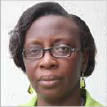START was founded in 1992 to advance scientific capacity and promote understanding of global environmental change. Since its early days, START has worked with regional and international institutions to establish its working agenda with a particular focus on Africa and Asia.
Through the years START has engaged over ten thousand researchers and practitioners. Our efforts mobilize country- and regionally-driven research collaborations dedicated to generating and disseminating scientific knowledge that informs decision-making and inspires solutions to global sustainability challenges.
START’s efficiency and impact have been recognized by the International Center for Climate Governance (ICCG) that named START 3rd Top Climate Think Tank for North America for 2016 under standardized rankings.
From 2002 to 2007, START led the Assessments of Impacts and Adaptation to Climate Change (AIACC) project, a global initiative to advance scientific understanding of climate change vulnerabilities and adaptation options in developing countries.
The project involved over 300 scientists and produced 24 subregional studies and more than 200 publications that provided critical input to the 4th Assessment Report of the Intergovernmental Panel on Climate Change (IPCC).
START partnered on this project with UNEP, the Academy of Sciences of the Developing World (TWAS) and the Intergovernmental Panel on Climate Change (IPCC), with funding by the Global Environment Facility (GEF).
Together with UNEP and the WMO, START undertook an assessment of urban and peri-urban agriculture in nine cities across West Africa, East Africa and South Asia, involving over 70 researchers and 450 city stakeholders.
The assessments, which occurred between 2011 and 2013, highlighted the challenges agriculture faces in rapidly growing cities, and provided data and resources to support city-level decision making.
Read how the findings of the assessment led by Prof. Ibidun Adelekan in Nigeria have given city officials a better understanding of how to work with women farmers involved in Ibadan’s vibrant urban agriculture sector.
In partnership with the University of Dar es Salaam, in 2007 START initiated the African Climate Change Fellowship Program to promote innovative research on climate change adaptation in Africa.
During four fellowship rounds, the program matched over 100 fellows with universities and research centers across Africa to implement individually designed research projects.
Read about the solutions developed by fellow Mzime Ndebele-Murisa to address fish declines in Lake Kariba, on the border between Zambia and Zimbabwe.
Through the Cities at Risk program, START brought together scientists, city planning professionals, politicians, and civil society representatives to improve collective understanding of how climate change will impact rapidly growing urban centers in their regions and to develop climate and disaster risk strategies that take into account anticipated challenges.
The program engaged individuals and institutions from more than 20 cities in South and Southeast Asia, and eleven cities in Africa through international conferences, intensive training institutes and communications and outreach activities.
Hendricus Andy Simarmata engaged with START during two Cities at Risk events in Bangkok (2010) and Taipei (2011). “The START program helped me to understand global issues, to meet international experts and to learn from other countries’ experiences. This has helped me to understand and define development needs for my own region.” Read more
As part of its long-standing partnership with the Global Observation of Forest and Land Cover Dynamics, and with funding from NASA, START is improving developing countries’ access to satellite data, increasing scientists’ capacity to produce and analyze data, and fostering regional networks of scientists.
In 2016, START, together with partners, supported over 400 scientists to participate in knowledge-sharing and training events. Thirty fellows from South and Southeast Asia received a two-week training on accessing and analyzing remote sensing data.
Read how former fellow Wisdom Dlamini used the skills and knowledge acquired during a GOFC-GOLD training to advise the Government of Swaziland on a new fire management policy.

